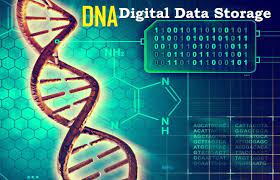
Advantages of distributed storage
Decentralized storage services offer numerous benefits compared to traditional centralized storage systems. In this article, we will explore some of the key advantages that decentralized storage provides.
Secure data storage solutions
One of the primary advantages of decentralized storage services is the enhanced security it offers. Unlike centralized systems where data is stored on a single server or a limited number of servers, decentralized storage distributes data across multiple nodes in a network. This means that even if one node fails or is compromised, the data can still be retrieved from other nodes. This distributes the risk of data loss or unauthorized access, making decentralized storage more resilient to cyber attacks and hardware failures.
Furthermore, decentralized storage systems often employ advanced encryption algorithms to protect the stored data. With strong encryption measures in place, the risk of data breaches is significantly reduced, ensuring the privacy and security of stored information.
Enhanced data privacy storage
Decentralized storage services also offer enhanced data privacy compared to centralized storage systems. In a decentralized network, each user retains control over their own data and can decide how it is stored and shared. This ensures that individuals have greater control over their personal information and can protect it from being accessed or monetized by third-party entities.
In addition, some decentralized storage platforms utilize blockchain technology, which provides an added layer of transparency and immutability to the storage process. By leveraging blockchain, users can verify the integrity and authenticity of their data, reducing the risk of tampering or data manipulation.
Another aspect of data privacy in decentralized storage is the absence of single points of failure. In centralized systems, if the central server or data center experiences a failure, all data stored on that server becomes inaccessible. In contrast, decentralized storage ensures that data remains accessible even if some nodes in the network go offline or become unavailable. This fault-tolerant nature of decentralized storage enhances the availability and reliability of stored data.
Decentralized storage also eliminates the need for trusting third-party service providers with sensitive data. Users can store data directly on the network without relying on a centralized authority. This reduces the risk of data breaches or unauthorized access, as data is not concentrated in a single location or controlled by a single entity.
Furthermore, decentralized storage promotes data sovereignty, allowing individuals and organizations to store their data in compliance with their local regulations and preferences. With centralized storage, data may be subject to the laws and regulations of the jurisdiction in which the storage provider operates. Decentralized storage eliminates this concern by allowing users to choose where their data is stored, providing them with greater control and compliance.
In conclusion, decentralized storage services offer secure and privacy-enhanced solutions for data storage. By leveraging distributed networks and encryption techniques, decentralized storage mitigates risks associated with centralized storage systems. Whether it's protecting sensitive personal information or ensuring compliance with data regulations, decentralized storage provides a robust and reliable solution.

























